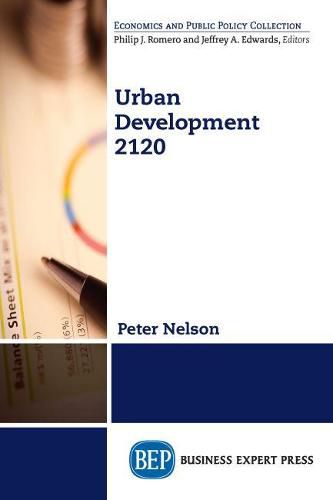Readings Newsletter
Become a Readings Member to make your shopping experience even easier.
Sign in or sign up for free!
You’re not far away from qualifying for FREE standard shipping within Australia
You’ve qualified for FREE standard shipping within Australia
The cart is loading…






This title is printed to order. This book may have been self-published. If so, we cannot guarantee the quality of the content. In the main most books will have gone through the editing process however some may not. We therefore suggest that you be aware of this before ordering this book. If in doubt check either the author or publisher’s details as we are unable to accept any returns unless they are faulty. Please contact us if you have any questions.
The year 2120 may appear a long way into the future but will come quickly. The global population reached one billion in 1804, four billion in 1974, six billion in 1999, seven billion in 2012, and nine billion predicted for 2020. Given the speed of current development under the threat of changing climate, this book attempts to project ahead but with a particular focus. Housing and feeding so many people is about saving the planet while laying the foundations for a quality of life that is within what people in 2120 will want in their living conditions.
One factor has not been considered, namely, how each new generation comes in at a different reference point. Previously, the ideal home might have had a house, a garden, perhaps a swimming pool or tennis court. Teenagers today don’t care about these amenities as long as they have access to their electronic devices. Grandparents might resent living in one-room apartments, while young people could find this acceptable. The planning conundrum is to anticipate the expectations of future generations. This text looks at best theories of urban development, attempting to integrate future expectations in the hope of guiding governments to think outside the box.
$9.00 standard shipping within Australia
FREE standard shipping within Australia for orders over $100.00
Express & International shipping calculated at checkout
This title is printed to order. This book may have been self-published. If so, we cannot guarantee the quality of the content. In the main most books will have gone through the editing process however some may not. We therefore suggest that you be aware of this before ordering this book. If in doubt check either the author or publisher’s details as we are unable to accept any returns unless they are faulty. Please contact us if you have any questions.
The year 2120 may appear a long way into the future but will come quickly. The global population reached one billion in 1804, four billion in 1974, six billion in 1999, seven billion in 2012, and nine billion predicted for 2020. Given the speed of current development under the threat of changing climate, this book attempts to project ahead but with a particular focus. Housing and feeding so many people is about saving the planet while laying the foundations for a quality of life that is within what people in 2120 will want in their living conditions.
One factor has not been considered, namely, how each new generation comes in at a different reference point. Previously, the ideal home might have had a house, a garden, perhaps a swimming pool or tennis court. Teenagers today don’t care about these amenities as long as they have access to their electronic devices. Grandparents might resent living in one-room apartments, while young people could find this acceptable. The planning conundrum is to anticipate the expectations of future generations. This text looks at best theories of urban development, attempting to integrate future expectations in the hope of guiding governments to think outside the box.